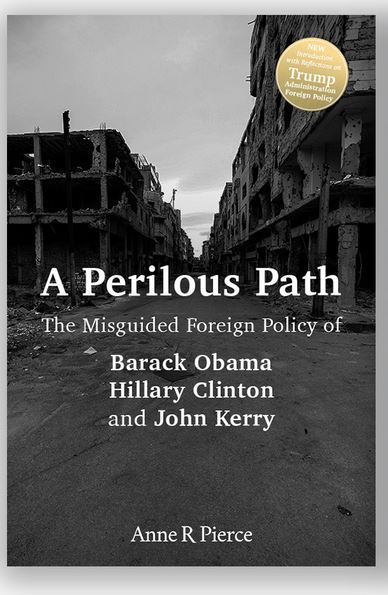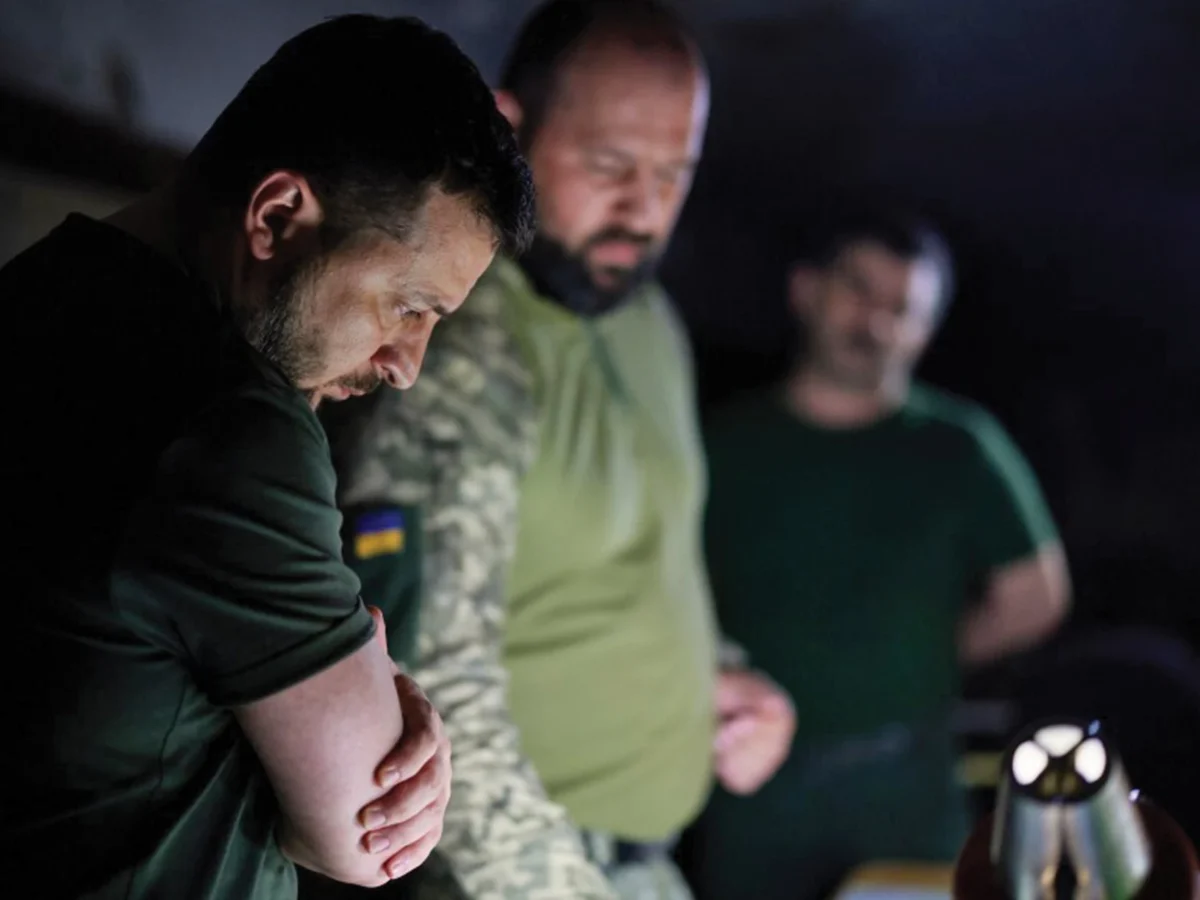Defying the odds, heroic Ukraine could conceivably draw Russia into a stalemate and, with enough military aid, “win” this war. Russia’s failure to capture Kyiv and the ground it has lost in Kharkiv have given Western onlookers hope, and an excuse not to do more. But looking at the terrible atrocities Russia has committed, the all-out invasion of a sovereign nation that has occurred, the cities and towns that have been obliterated, and the territory Russia has conquered, it is reasonable to assert that Russia’s war on Ukraine already represents a “loss” for human rights and international norms.
With their spirit of freedom, love of homeland, and incredible bravery, Ukrainians stand a fighting chance, but only if the West steps up and speeds up the delivery of heavy weapons and stops pressuring Ukraine toward a ceasefire or compromise, which would be but a reprieve from more Russian war crimes and conquests. Gradually arming Ukraine is not grand strategy, and it is no substitute for a clear moral stand. If Ukraine wins the war yet lies in ruins, and Ukrainians are left devastated, without families, homes, neighborhoods, or farms to return to, what kind of win is that? Ukrainian President Volodymyr Zelensky emphasizes the imperative of unequivocal victory, but he also emphasizes the excruciating “price“ Ukrainians are paying to stay in this fight, which he points out is for democracy itself, for our way of life.
That is why at the June 29-30 NATO summit in Madrid, the alliance will have critical choices to make that will affect the organization’s credibility, influence, and reputation for many years to come. Maintaining the status quo on Ukraine policy is neither a principled nor wise option. Western leaders will assess member nations’ enthusiasm for enlarging NATO by adding Finland and Sweden, and for taking a more aggressive deterrent posture toward both Russia and China. Zelensky will make an appeal to the summit, and the audience should prepare a comprehensive and serious response to his urgent requests. Russian advances in the south and east should serve as a warning against further complacency regarding the outcome of this war. Russia’s ever more widespread and horrific atrocities should awaken concerted Western resistance to the genocide that is unfolding in the heart of Europe.
One cannot look at the massacre, torture, rape, and mass displacement of civilians; the carpet-bombing and starvation sieges of cities and towns; the targeting of apartments, schools, hospitals, evacuation centers, oil depots, and infrastructure; the destruction and pillage of cultural treasures; the appropriation of farms and blockade of Black Sea ports that send Ukrainian wheat to the world; and, perhaps most horrifying of all, the “disappearances” of innocents, including children, and with good conscience focus on the credit the West deserves for “saving Ukraine.” Steady increases in weapons deliveries, financial aid, and humanitarian assistance are good but are not enough to stop the World War II-like inhumanity and destruction from growing worse before our eyes. A man responsible for coordinating burials in Mariupol told press that 50,000 have died there, while the mayor of Severodonetsk says Russians are turning that city into another Mariupol.
According to the United Nations’s refugee agency, more than 13 million people have been displaced since the war began, with those numbers continuing to rise. The U.N.’s development agency warns that, if the war continues, an astounding 90% of Ukrainians will be at or below poverty levels. Investigations by news and human rights organizations indicate that captured survivors of besieged cities are being sent to a remote network of camps in regions including Siberia, the Caucasus, and the Arctic Circle. Ukrainian POWs are placed in detention centers where they are subject to interrogations, torture, and even “trials” on charges of “extremism.” Ukraine has accused Russia of forcibly deporting more than 210,000 children, whom it intends to make Russian citizens. Human Rights Ombudsman Lyudmyla Denisova says these children are among 1.2 million Ukrainians who have been deported against their will. Cruel separation of children from families and horrific physical and sexual abuse of children add to the impression that we are at risk of losing not just the post-World War II rules-based order, but the rules themselves. What credibility can the Geneva Convention, the U.N. Universal Declaration of Human Rights and “Responsibility to Protect,” or norms of national sovereignty, territorial integrity, and the collective security of democracies have in a world such as this?
There are not only severe human rights consequences but also serious geopolitical and military consequences to the deportation and displacement of Ukrainians. The Center for European Policy Analysis points out that removing Ukrainians from various territories makes it “easier to control them” and that the more Ukrainians who flee, “the easier it becomes for Russia to lay claim to more Ukrainian territory when the war finally ends.” Another sad reality: Vladimir Putin’s Russia has been credibly accused of using banned thermobaric weapons and cluster munitions and as the war grinds on is likely to use ever more horrific methods to slaughter and terrorize Ukrainians, including possibly biological, chemical, or even tactical nuclear weapons. Indeed, with Putin’s campaign to “erase” the Ukrainian state and Ukrainian identity fueling Russia’s terrible extremes, President Joe Biden is right to term Russia’s war a genocide, and Sen. Mitch McConnell is right to call for designating Russia a state sponsor of terror. Thwarting Putin’s nihilistic campaign to bring Eastern Europe to its knees is both morally right and strategically necessary.
Ukrainian Foreign Minister Dmytro Kuleba recently noted that if Ukraine had received the weapons it requested earlier, the situation would be “much different … much better.” In a May 3 interview with the Wall Street Journal, Zelensky lamented that much promised military aid had “not yet arrived” and that some have “promised aid but have not sent it.” Indeed, the Polish offer to send MiG-29 fighter jets to Ukraine is stalled, and the provision of heavy weaponry is inadequate due to U.S. and European hesitancy. The Biden administration did not “announce” it would ship 90 Howitzers to Ukraine until late April. It has finally, significantly, decided to provide Ukraine with MLR (multiple launch rocket) systems with a 70-kilometer range but is denying Ukraine MLR systems with a 300-kilometer range. Retired Air Force Gen. Philip Breedlove told Task and Purpose, “We are giving them a limited number. We need to give them more, and we need to consider giving them the longer-range munitions.”
Ukrainians are pleading for fast delivery of air defenses and anti-missile systems and lamenting the prevarication and incrementalism that costs so many lives, leaves so many destitute or traumatized, and allows such horrors to continue. Time is of the essence.
The West’s fear of nuclear escalation is reasonable. But over-caution could actually increase the chances of escalation. While Russia has seized territory, the Biden administration and NATO have ruled out direct military involvement without getting anything from Russia in return. Repeated public pronouncements that we won’t enter the war due to the risk of escalation send a dangerous message not only to Russia but to other aggressors who might be incentivized to pursue nuclear weapons to ward off a Western military response to their hostilities and atrocities. Because we didn’t do enough to stop Russia before, our options are more treacherous now. But if we don’t stop Russia now, our options will be yet more treacherous in the future.
With a stalemate between Russian and Ukrainian forces now possible, some prominent Europeans and Americans are urging Ukraine toward an armistice that involves territorial concessions. But that would allow Russia to keep pursuing expansionist goals and would set the stage for Russia’s next military incursion. The utter futility of the West’s search for a “diplomatic offramp” from Putin’s February invasion should have shown what Russia’s violations of the Budapest, Geneva, and Minsk agreements had already shown: Putin uses negotiations to buy time and cover for further aggression.
With Russia’s sinister plans for Ukraine finally receiving attention, we mustn’t forget Putin’s broader ambitions. With a massive military buildup that includes major advances in hybrid, cyber, and nuclear capabilities; incursions in Chechnya, Georgia, Syria, and Moldova; subversive acts in Poland and the Baltics; alarming advances in the Black Sea; the achievement of power-broker status in the Middle East; malign influence in Cuba, Nicaragua, and Venezuela; and global information operations and energy blackmail, Russia remains a formidable adversary. Putin has reaped geopolitical rewards by backing paramilitary groups and anti-democratic strongmen and by greatly expanding Russia’s strategic and military relationships with China and Iran. Russia seeks to subvert the West’s pro-democracy agenda whenever there is an opening — and the West should not give Russia another opening.
Thus, the free world must, as during the Cold War, decide what it stands for and why, and how to meet this moment. The NATO Strategic Concept to be delivered this month should, as CEPA asserts, “clearly state how the alliance will defend the international rules-based order” and should adopt the Responsibility to Protect “as its guiding principle for acting in its neighborhood.” The human rights imperative is connected to the imperative of collective defense. What can we do to protect sovereign states, innocent civilians, regional stability, and the democratic way of life? Our best military and geopolitical strategists, and deep hearts and minds, must rise to this challenge. Should NATO initiate a crisis response to more directly help Ukraine protect its skies, rescue civilians, and stop atrocities? Should NATO heed recommendations of retired Adm. James Stavridis and others for a flotilla to escort Black Sea cargo ships carrying wheat? At a minimum: The U.S. and Europe must immediately give Ukraine the heavy weapons, aircraft, and ammunition it urgently requests. They must fully ban Russian oil and gas, sanction many more Russian oligarchs, and disconnect all, not some, Russian banks from SWIFT. They must prioritize a decisive Ukrainian win and a fearsome response to Russian atrocities, with crimes documented and criminals held accountable.
Finland’s and Sweden’s pending historic admission to NATO represents new awareness of the Russian threat to freedom itself. The West should also quickly meet Ukraine’s and Moldova’s request to join the European Union, Georgia’s request to join the EU and NATO, and Estonia’s request for stronger NATO defense of Baltic members. We can either muster a stronger response to Russia’s genocidal war to “erase” Ukraine, or we can witness further erosion of American power and American-democratic ideals, more setbacks for “Europe whole and free,” and Russia’s continued bloody pursuit of a resurrected Russian empire.
Anne R. Pierce is the author of books and articles on American presidents, American foreign policy, and American society. Follow her @AnneRPierce.
This article was originally published in The Washington Examiner on June 16, 2022. Read the full article here.


